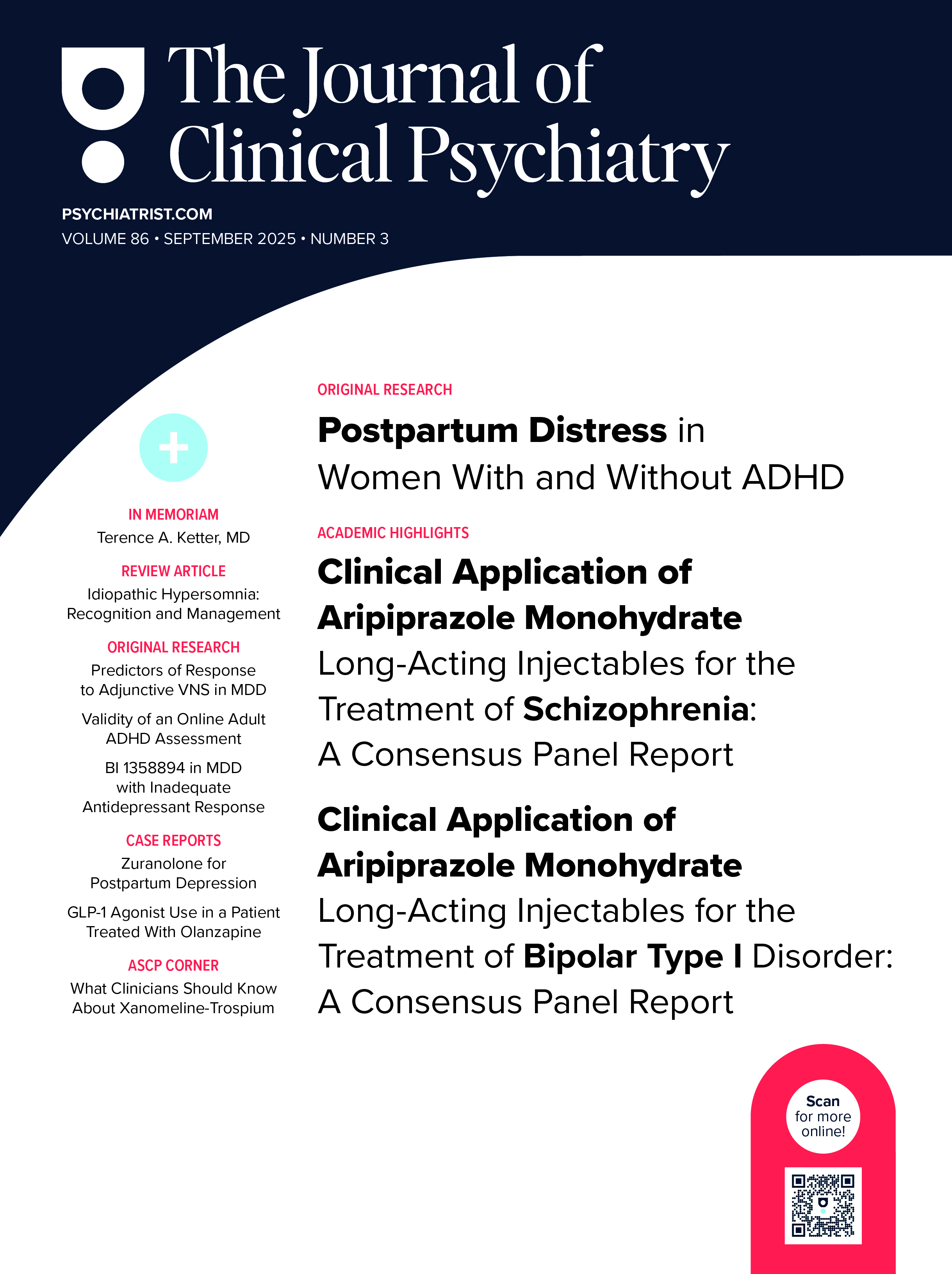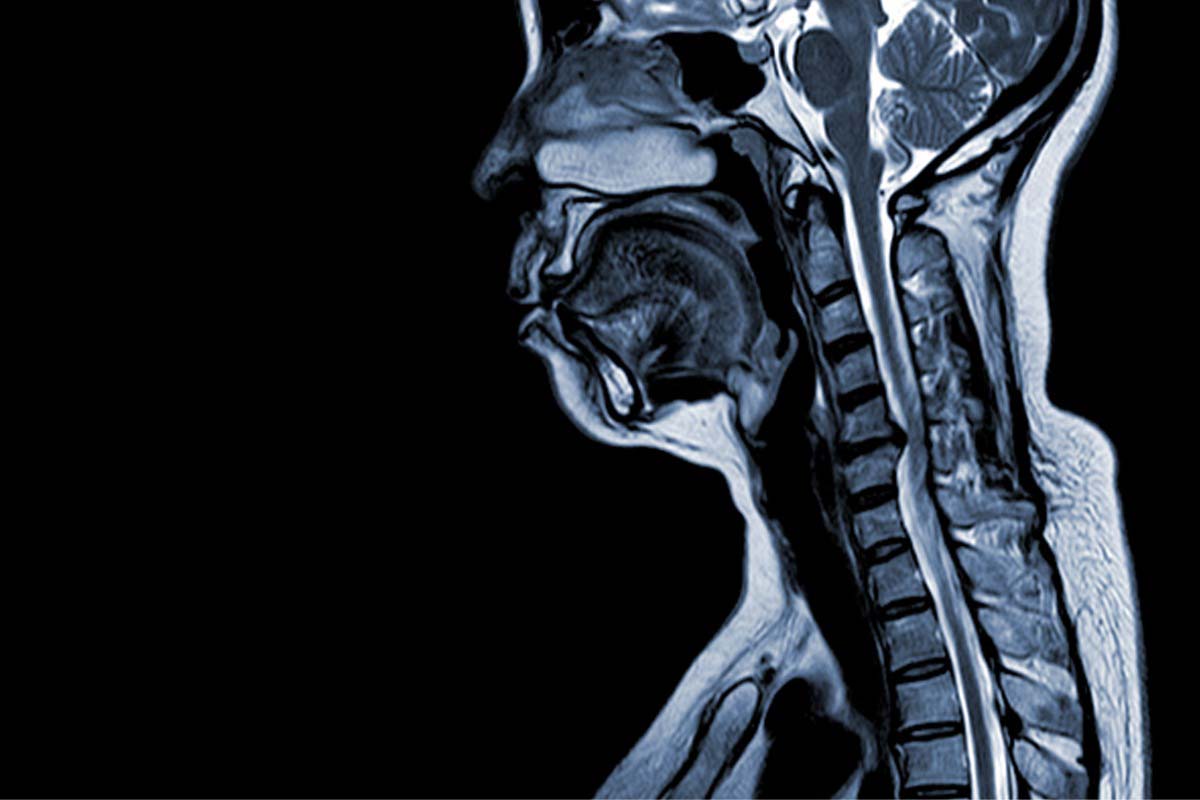
During a global pandemic, the mental health of those with a serious mental illness such as schizophrenia may not be at the forefront of most people’s minds.1 Overlooking these individuals is, however, a mistake. People with significant psychotic symptoms not only may put themselves at risk during this public health emergency, but also may inadvertently contribute to the spread of coronavirus disease 2019 (COVID-19) and undermine infection control efforts. Acutely ill patients may be unable to appreciate the seriousness of a pandemic and even less likely to follow instructions such as social distancing or mask wearing.
One important tool for relapse prevention is antipsychotic medication, including long-acting injectable antipsychotics (LAIs). While a first-line treatment in principle, LAIs need to be administered in person, which is counterintuitive to infection control guidelines and can increase risk of viral transmission. It may be difficult for patients afraid of coming to clinic or not possible for those required to quarantine. In this report, we describe how our community mental health clinic with a large injection clinic in Boston successfully reduced the number of annual in-person injections by about 40%. We believe these efforts reduced the infection risk to patients themselves, the clinic staff, and the community at large.
Taking a population-based approach, we first created a spreadsheet of all patients on LAI treatment at our clinic to determine which patients could be (1) switched to an LAI with a longer interval, (2) switched to oral antipsychotics, or (3) given the LAI in their home to avoid a trip to the clinic. The latter two options are particularly important if public travel is ill-advised (eg, patient in a high-risk category) or not possible (quarantine). Factors to consider in changing treatment with LAIs during the COVID-19 pandemic include current psychiatric status, historical medication adherence, potential for decompensations when untreated, community resources to support ongoing treatment, and infection risk to the patient, clinician, and those with whom a patient may live.2
We determined that our clinic, the Freedom Trail Clinic of North Suffolk Mental Health Association, was responsible for 81 people treated with LAIs as of January 1, 2020. Between January and May 2020, 23 of these people transitioned to an outside injection provider, most frequently a visiting nurse. Six transitioned to oral medications, and 3 transferred care. The remaining 45 patients continued to receive their LAI at the clinic. For those 45, 15% (7 patients) were switched to longer-acting formulations of their respective LAIs and came less often. Regarding the LAIs prescribed, 30 patients were receiving aripiprazole (Aristada or Maintena), 18 patients were receiving paliperidone (Sustenna or Trinza), 12 patients were receiving haloperidol, 3 patients were receiving risperidone, and 1 patient was receiving fluphenazine. No patients required psychiatric hospitalization due to missing their injection or experienced a significant increase in symptoms due to a medication switch.
Careful planning with the patient, close communication with community supports, and use of appropriate precautions led to uninterrupted psychiatric care of a vulnerable population while mitigating infection risk for patients and the community. Importantly, fewer in-clinic injections need not translate into less optimal clinical care: telepsychiatry quite likely meets the needs of many patients.
The strategies implemented and described in this report are common sense, and many clinicians may have deployed them prior to the pandemic. However, making these decisions explicit benefited our workflow beyond reducing transmission risk: by improving adherence, increasing convenience, and promoting better coordination with our pharmacy partner. More flexible treatment approaches learned during this crisis may endure and ultimately improve psychiatric care for this forgotten group.3
Published online: January 12, 2021.
Potential conflicts of interest: Ms MacLaurin: Alkermes (research grant to institution, consultant honoraria—advisory board), Janssen (research grant to institution), American Psychiatric Association (consultant honoraria—SMI Advisor). Ms Mulligan: Alkermes (research grant to institution), Janssen (research grant to institution). Dr Freudenreich: Alkermes (research grant to institution, consultant honoraria—advisory board), Avanir (research grant to institution), Janssen (research grant to institution, consultant honoraria—advisory board), Integral (consultant honoraria), Neurocrine (consultant honoraria—advisory board), Novartis (consultant honoraria), Otsuka (research grant to institution), Roche (consultant honoraria), Springer Verlag (royalties—medical writer), Elsevier (honoraria—medical editing), Global Medical Education (honoraria—CME speaker and content developer), Medscape (honoraria—CME speaker), American Psychiatric Association (consultant honoraria—SMI Adviser), Wolters Kluwer (royalties—content developer), UpToDate (royalties, honoraria—content developer and editor). Dr Van Alphen reports no potential conflict of interest.
Funding/support: There was no external funding for the work described in this report.
REFERENCES
1.Shinn AK, Viron M. Perspectives on the COVID-19 pandemic and individuals with serious mental illness. J Clin Psychiatry. 2020;81(3):20com13412. PubMed CrossRef
2.SMI Advisor website. https://smiadviser.org/knowledge_post/what-are-clinical-considerations-for-giving-lais-during-the-covid-19-public-health-emergency
3.Bartels SJ, Baggett TP, Freudenreich O, et al. COVID-19 emergency reforms in Massachusetts to support behavioral health care and reduce mortality of people with serious mental illness. Psychiatr Serv. 2020;71(10):1078-1081. PubMed CrossRef
aNorth Suffolk Mental Health Association, Boston, Massachusetts
bMassachusetts General Hospital, Boston, Massachusetts
cHarvard Medical School Boston, Massachusetts
*Corresponding author: Sarah A. MacLaurin, PMHNP, Freedom Trail Clinic, 25 Staniford St, Boston, MA 02114 ([email protected]).
J Clin Psychiatry 2021;82(1):20l13730
To cite: MacLaurin SA, Mulligan C, Van Alphen MU, et al. Optimal long-acting injectable antipsychotic management during COVID-19. J Clin Psychiatry. 2021;82(1):20l13730.
To share: https://doi.org/10.4088/JCP.20l13730
© Copyright 2021 Physicians Postgraduate Press, Inc.
This PDF is free for all visitors!




